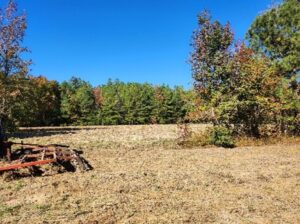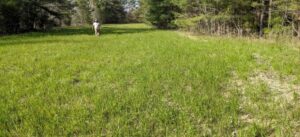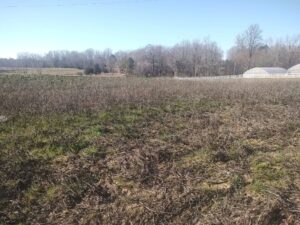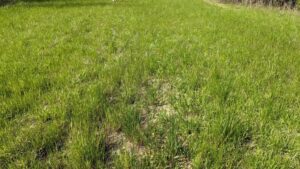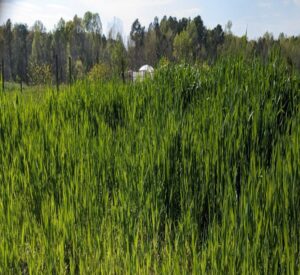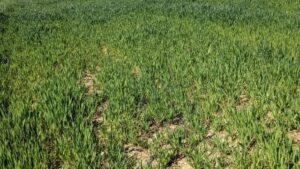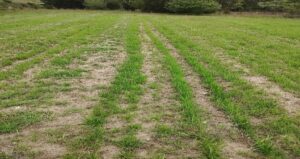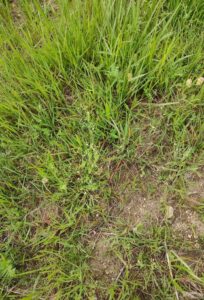Final report for LS22-371
Project Information
1: Expand the knowledge base concerning which cover crops work best for specific weeds in the South.
2: Expand usage of cover crops by limited-resource producers throughout the South to achieve weed suppression on farm.
3: Develop cover crop selection tools for southern farms.
4: Collect the stories of the farmer cooperators and older farmers about how to deal with weeds in a guide that also includes agronomic data about cover crops so the next generation can benefit from their knowledge.
Cooperators
- - Technical Advisor
Research
Farmers in the three organizations networks--OSP, SAAFON and NCAT, grew various cover crops to determine which cover crops suppress certain weeds in their fields. To assist the participating farms with conducting the on-farm research, the project team conducted group meetings to initiate discussions about the cover crop project and to ensure the stakeholders comprehended the project plans. Following the group meetings, one-on-one meetings with the farmers were conducted. These sessions were a platform for the project team to distribute seeds, create detailed implementation plans, mark off specific plots for the cover crops, and address any questions or concerns raised by the farmers. Each farmer was presented with a comprehensive plan that included what seeds would be provided, plot layout and measurements, and how to report their findings. Farmers planted their first session of cover crops in October and continued to monitor their crops throughout the winter months. Farmers planted wheat, cowpeas, buckwheat, lima beans, winter rye, clover, and fescue. Plots were fifty-two feet wide and 156 feet long. The 52-foot side was broken into (3) 17ft lengths. The 156ft long side was broken into (6) 26ft lengths. This yielded eighteen subplots to be planted by pattern. Cover crops were terminated in March. Farmers planted a spring cover crop by first discing the remnants of the previous cover crops. Cover crop seeds were then planted with a hand-held broadcast seeder. A smoothing harrow was used to promote seed to soil contact and increase germination rates. In July, farmers began planting ten pounds of each of their summer cover crops of buckwheat, cowpeas, peanuts, sudan grass, and sweet potatoes. Farmers observed their crops over throughout the growing season and following the same layout as previously stated.
One farmer reported the October planting of winter rye, wheat, and fescue was successful with little to no weeds present.
Another fall crop of wheat with turnip salad was sowed by hand without fertilizer. It started well. By Spring, weeds and deer overtook the salad. The field was then prepped for a summer planting.
Another October planting of wheat cover crop sowed with purple top turnip salad with no fertilizer. The wheat thrived with very little weeds. The farmer reported that the wheat was so thick that it dominated the turnip salad.
The spring planted clover and winter rye grass was successful. It rained right after planting so the crops germinated well. Some varieties of weeds grew amongst the rye and the clover. All in all, the weeds were minimal and the crops grew well.
The summer planted cover crops thrived in protecting the soil but did little to minimize the weeds. Various weeds were reported, including Johnson grass, red-root pigweed, and giant foxtail. The cowpeas and buckwheat did not do as well as the sudan grass and sweet potatoes. The peanuts did not germinate at all.
All the participating farmers saw an improvement in their soil, and various weeds were present but minimal. Their success in weed control and soil improvement is a testament to the impactful benefits of cover crops. The positive impact on soil quality and nutrient retention, as evidenced by the innovative pairing of turnip salad with cover crops, is a promising sign for the future of sustainable agriculture. While the farmers encountered some challenges with thick growth from cover crops overshadowing the turnip salad and other crops planted like radishes, the overall positive impact on soil quality and nutrient retention cannot be overlooked. The extreme temperatures experienced during this research presented a unique and significant opportunity to study the critical role of cover crops and their soil protection capabilities.
The project created opportunities for farmers across the Southeast to deepen their understanding of cover crops—particularly in relation to native varieties often dismissed as weeds. This approach shifted the focus from simply following a pre-set list of cover crops to a broader principle: recognizing how many crops, including those not typically listed, can provide cover crop benefits. Through this lens, crops such as lima beans (legumes) and sweet potatoes (providing tillage through their bulky roots and soil coverage through their extensive vines) were recognized as valuable cover crop contributors. This perspective encouraged farmers to look at their fields with fresh eyes, understanding how familiar crops and indigenous plants play a vital role in soil health and farm viability.
Education
Educational & Outreach Activities
Participation summary:
- January 2023 Operation Spring Plant hosted its annual conference in Raleigh where cover cropping was introduced to 65 producers.
- May 2023 Operation Spring Plan hosted an on-farm workshop. 13 participants learned about cover crop implementation.
- August 2023 a cover cropping class was conducted in Oxford, NC to 14 individuals, 4 of whom received on site farm visits and consultations.
- August 2023 SAAFON hosted a cover cropping class for its farmer participants in Hazlehurst, MS, where 15 participants and 5 SAAFON personnel attended
- December 2023 A meeting to explain cover crop research was held with 25 participants.
- January 2024 Operation Spring Plant hosted its annual conference in Durham where 150 participants learned about cover cropping.
- February 2024 A cover crop presentation was given at the Carolina Farm Stewardship Conference.
- April 2024 A farm tour and cover crop class in Balch Springs, TX with 6 people in attendance.
- April 2024 A cover crop presentation was given to 25 participants at the SW Arkansas Small Farms Conference.
- November 2024 Presentation at the National BUGs conference in Houston, Texas where 210 people learned about cover crops and 50 publications on cover crops were distributed.
- January 2025 a cover crop class taught to 80 attendees at the Operation Spring Plant Conference in Wilson, NC.
- May 2025 a cover crop class taught to 18 participants at the Austin Organic Gardeners Meeting.
There have been numerous posts on various social media platforms introducing cover crops to producers made by ATTRA and project partners.

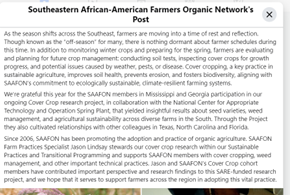
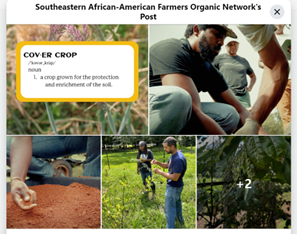
Learning Outcomes
Plant cover crops
identify weeds
